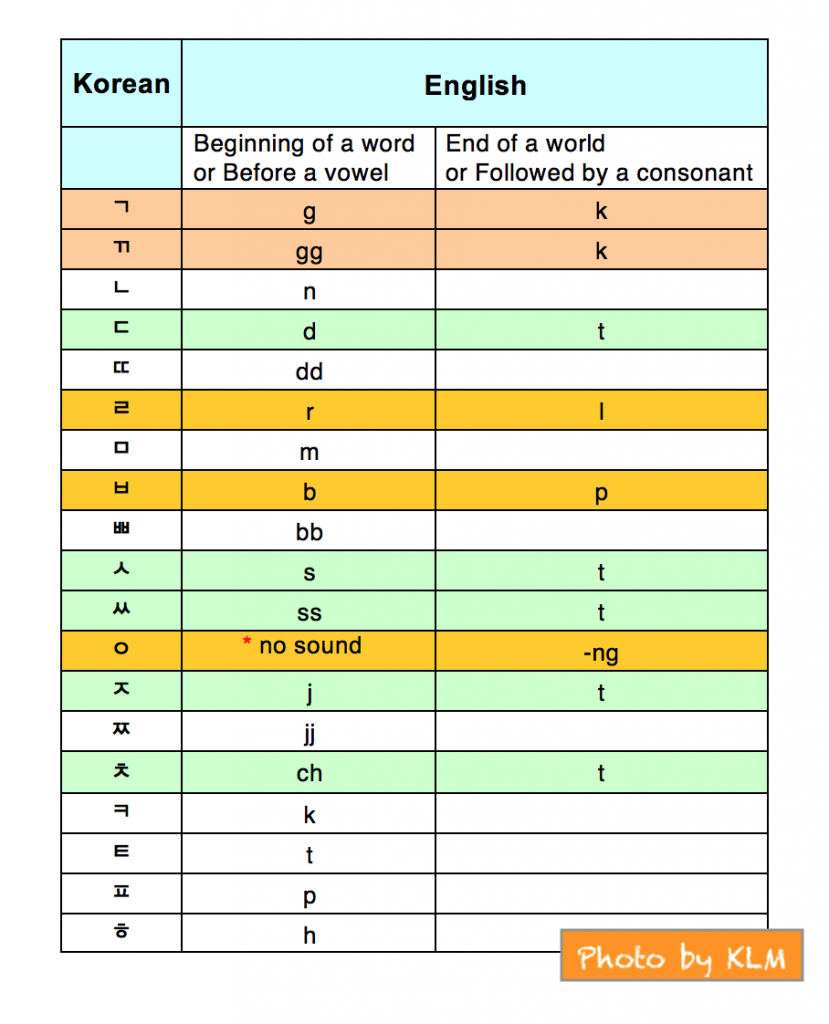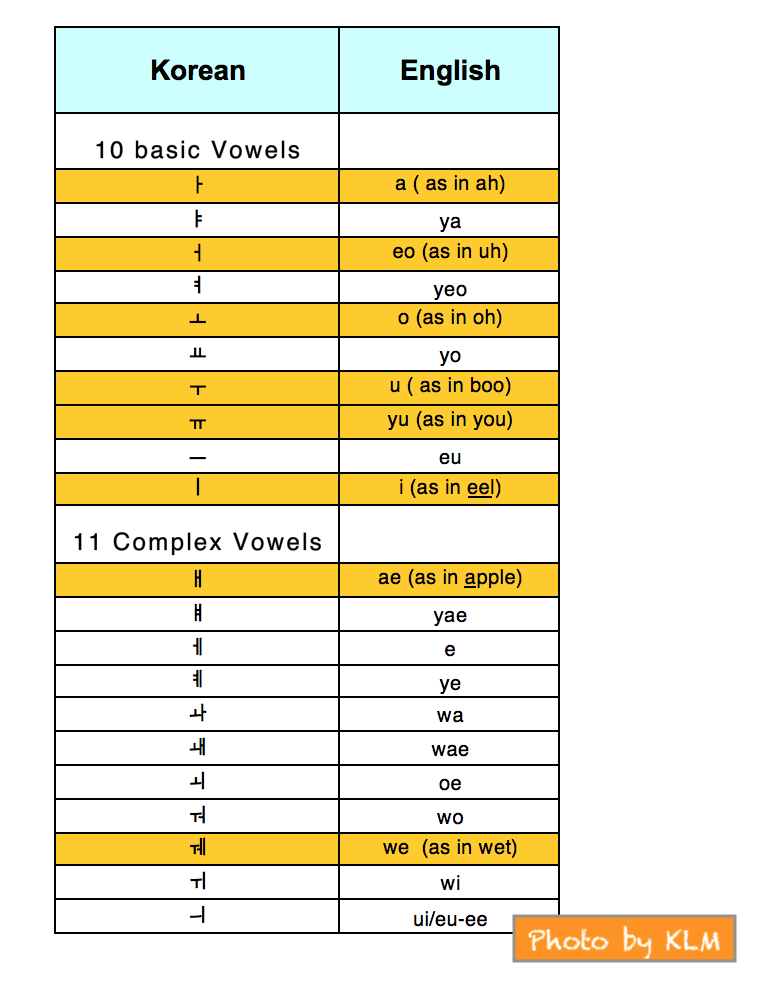Romanization of the Korean Language #1 Posted by Kyung-Hwa on Jan 10, 2018 in Korean Language, Vocabulary
If you are a beginning Korean learner or not familiar with the Korean language, the following Romanization tables will give you an opportunity to compare the Korean alphabet and its sounds into English. I hope you can use this post as a quick reference for your Korean language learning.
새해 복 많이 받으세요! (Happy New Year!) Are you still keeping up with your 새해 결심 (New Year’s resolution)? There is a popular Korean saying that people often use after setting or failing their New Year’s resolution. It is called,“작심삼일,” and this phrase means “a goal kept for only three days.” People often use this expression to one’s short-lived New Year’s resolution. If one of your resolutions is improving your Korean skills, I am here to help you to keep up with your goal.
If you are interested in learning about the Hangeul (한글– Korean Script) you can read this post, “The scientific and Phonetic Script 한글 (Hangeul) #1.”
Although some Korean sounds do not correspond to the sounds in English, this post will give you a general idea on how to read the Romanization of the Korean language. Learning to read and write 한글 is not as difficult as you think, so I would like to encourage you to study the Korean alphabet in order to become a natural and fluent Korean speaker in the future.
Here are some examples of the Romanization of the Korean language:
1. Hanguk (한국 – Korea )
2. Hangeul (한글 – Korean Script)
3. Banana (바나나 – banana)
4. San (산 – mountain)
5. Don (돈 – money)
The following table is a quick reference guide to the Romanization of the Korean consonants. You can follow this link to learn more about Korean consonants.
The following table is a quick reference guide to the Romanization of the Korean vowels. You can follow this link to learn more about Korean vowels.
If learning Korean language is your New Year’s resolution, I hope this Korean post will help you to keep up with your goal in 2018. Keep up the good work, everyone!!!
새해 복 많이 받으세요! (Happy New Year!)
감사합니다! (Thank you!)

Build vocabulary, practice pronunciation, and more with Transparent Language Online. Available anytime, anywhere, on any device.






Comments:
Thao:
I’m Thao, I am from Vietnam. I love language too, i want to learn Korean.
Kyung-Hwa:
@Thao annyeonghaseyo! (안녕하세요! – Hello!)
I have friends from Vietnam (베트남) and love to eat Vietnamese food.
I am happy to hear that you want to learn Korean.
Good luck learning Korean!